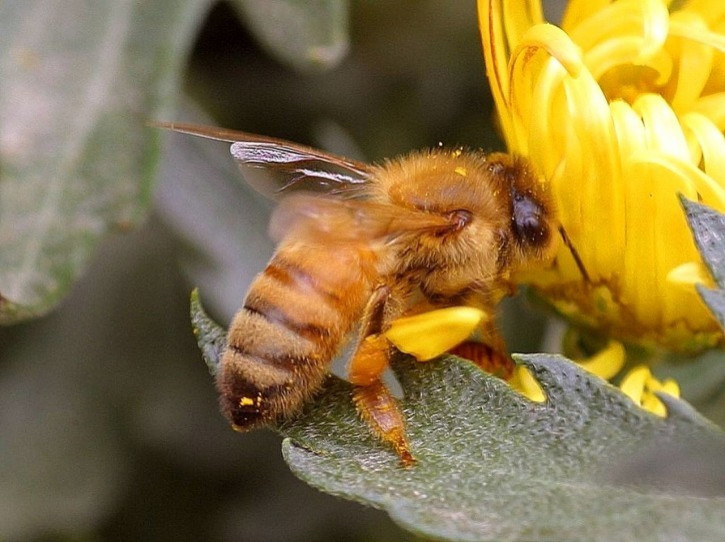Food Apocalypse: Higher food prices on the horizon

With food prices around the world skyrocketing, increasing hunger and in some cases acting as a catalyst for regime changes in the Middle East, there is more to worry about on the horizon.
Just last week the public was informed by the World Health Organization that cell phones could be a possible carcinogen. However, brain tumors may not be the immediate problem that needs to be addressed in relation to the dangers of cellular technology. The WHO's recent report brings attention to another report released by the Swiss Federal Institute of Technology(SFIT) in April.
Since 2006 the world's honeybee population has been in decline due to a problem known as Colony Collapse Disorder. According to the US Department of Agriculture, the disorder is defined as the disappearance of all adult honey bees in a hive.
In the SFIT report, they found that active cell phones in close vicinity of honeybees had a dramatic effect on the bees worker piping -essentially causing the bees to exhibit Colony Collapse Disorder. The bees became terminally confused and died as a result of the electromagnetic signal.
The report does not address cellular exposure from a distance, but the findings do confirm that close vicinity to active mobile phones can have a dramatic effect. Since 2006, the world's cell phone subscribers has doubled from more than 40% of the worlds population, according to the World Development Indicators, adding to the amount of electromagnetic transmissions.
On top of SFIT's report, another recent survey was released by the US Department of Agriculture and Apiary Inspectors of America that adds even more urgency to the situation. It was revealed that over the 2010-2011 winter, US honeybee colonies had reduced by 30%.
While there is no conclusive connection between the two reports, the rapid decline of the honeybee population is having real consequences on the economy.
Currently, honeybees help to pollinate over 70% of the world's food crops. In the US alone, honeybees help in contributing $15 billion towards the national GDP, including billions more in related economic activity. The disappearance of honeybees could end up costing the US billions in revenue. Today, the rapid collapse of colonies is already putting some beekeepers out of business.
Along with the economic effects, 13.6% of the worlds population is characterized as undernourished by the UN Food and Agriculture Organization, the number is expected to rise as food prices around the world continue to rise. With over a billion people starving, the dire consequences of Colony Collapse Disorder are all too clear.
Further studies are still underway to find a solution to the disorder. Main causes are still unknown but there are a number of possible causes. The SFIT report adds to the list of culprits. If the SFIT studies are found to be conclusive, the world may find itselves in a situation to reform global wireless standards.
With the current innovation in the mobile industry and people's growing dependance on the mobile devices, a conclusive report could have serious consequences. However if it also turns out to be the main culprit, doing nothing could have even more serious consequences.
© Copyright IBTimes 2024. All rights reserved.





















